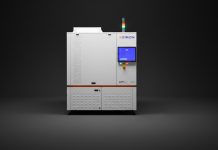The forecast for U.S. economic growth, initially expected to be 0.5 percent at the beginning of 2023, is now expected to grow by 2 percent. While the U.S. economy has surpassed expectations, the Federal Reserve has raised rates significantly over the last year, signaling tremendous headwinds as those rates take effect. In Europe, growth in the Eurozone expanded by 0.3 percent compared to the previous quarter, marking the most substantial growth since the second quarter of 2022, according to IPC’s August 2023 Economic Outlook report.
According to Shawn DuBravac, IPC chief economist, “The coming months will be crucial in determining the trajectory of the U.S. economy, with a keen eye on the Federal Reserve’s strategies to balance growth and inflation concerns.”
Additional data in the August IPC Economic Outlook show:
- In the U.S., infrastructure investments are poised to give a boost to the construction sector, potentially offsetting some of the slowdown in other areas of the economy.
- The U.S. manufacturing sector recorded a strong month, reporting output gains rose 0.5 percent in July, the first gain in three months. Auto and non-auto manufacturing both posted increases, rising 5.2 percent and 0.1 percent, respectively.
- The U.S. New Orders Index suggests orders remain soft, but manufacturers appear to be managing slower orders well.
- In Europe, the economies of France and Spain demonstrated positive growth, spurred by a surge in exports in France and a rebound in domestic demand in Spain.
- In the second quarter of 2023, employment rose by 0.2 percent in both the Eurozone and the EU. During the first quarter of 2023, both regions witnessed a more substantial increase in employment, with a growth rate of 0.5 percent.
View August 2023 IPC Economic Outlook. For more information on IPC’s industry intelligence program including current research and reports, visit www.ipc.org/advocacy/industry-intelligence.










